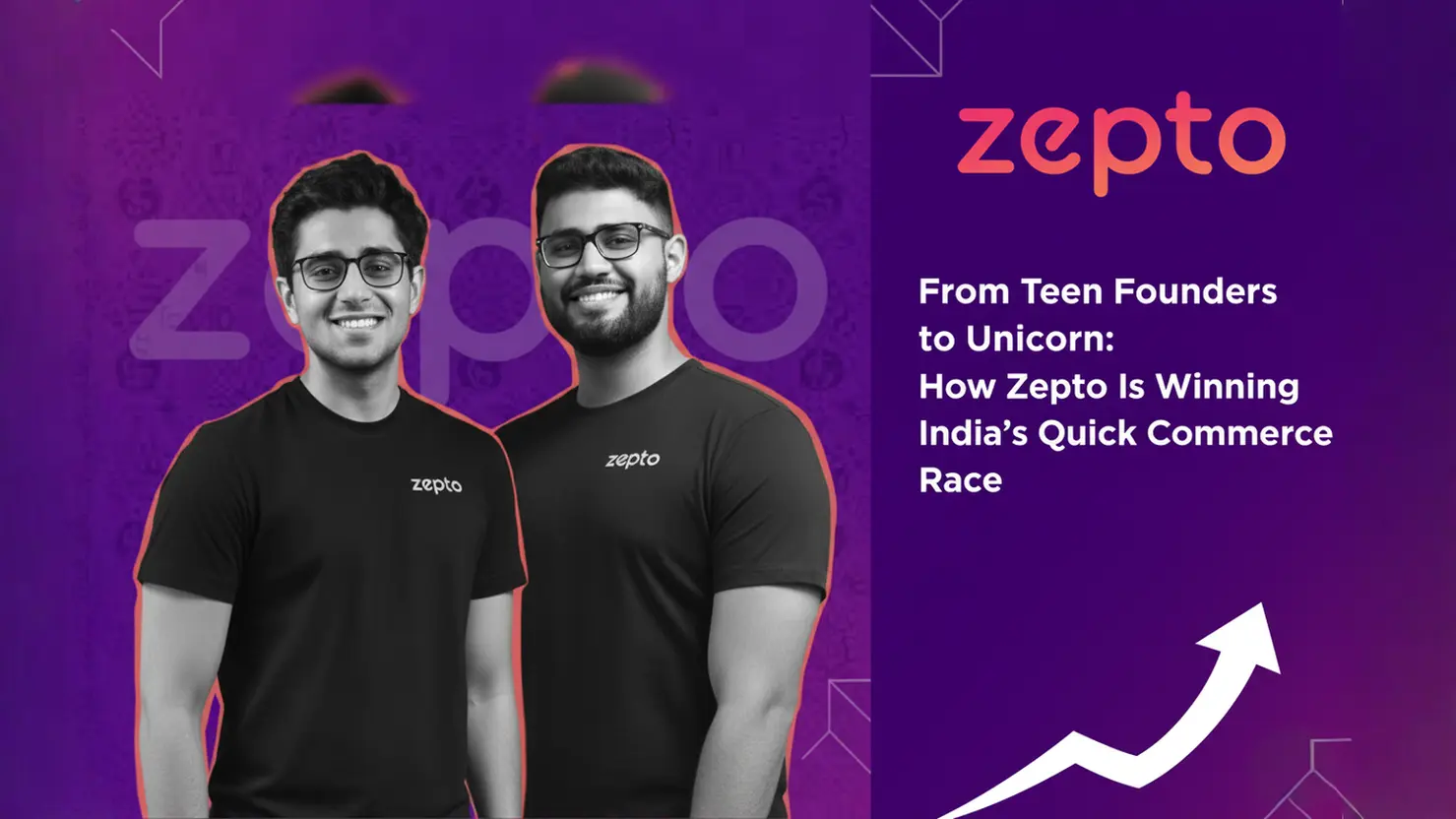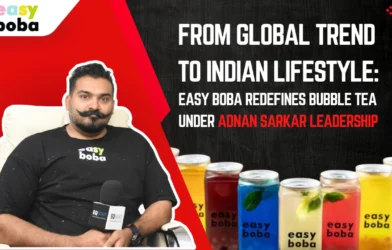Author: Dev Patel | EQMint
Company History
Zepto was founded in April 2021 with the bold promise of delivering groceries and essentials to customers’ doorsteps in just 10 minutes. Built on the vision that urban consumers needed ultra-fast convenience, Zepto reimagined last-mile logistics in India.
The startup quickly tapped into the rising demand for instant commerce during and after the pandemic, when home deliveries became a necessity. In its first few months, Zepto expanded rapidly across metro cities like Mumbai, Delhi, Bengaluru, and Chennai, winning over consumers with speed and reliability.
By 2022, Zepto had secured large funding rounds from top-tier global investors, pushing its valuation close to a billion dollars. In August 2023, Zepto officially entered the unicorn club, raising $200 million in its Series E round at a valuation of $1.4 billion, making it one of the youngest Indian startups to achieve unicorn status.
The company operates through a network of “dark stores” — small warehouses located strategically in high-demand urban areas. These enable quick fulfillment of customer orders by reducing delivery radius and ensuring optimized inventory.
By 2024, Zepto had become the poster child of India’s quick commerce revolution, scaling operations while competing with giants like Blinkit and Swiggy Instamart. Today, it serves millions of customers across India’s metros and Tier 1 cities.
Founders
Zepto was founded by Aadit Palicha and Kaivalya Vohra, two Stanford University dropouts who returned to India during the pandemic. Both were barely 19 years old when they launched the startup.
- Aadit Palicha serves as CEO and is responsible for overall strategy, fundraising, and scaling operations.
- Kaivalya Vohra, the CTO, drives product development and technology infrastructure, focusing on the efficiency of the dark store model and logistics algorithms.
Their entrepreneurial journey has been widely celebrated as a case study in bold risk-taking, resilience, and the ability of Gen-Z founders to disrupt large industries.
Business Model
Zepto’s business model is based on the quick commerce (q-commerce) approach, where groceries and essentials are delivered in under 10–20 minutes. Its model includes several critical components:
Dark Store Network
- Zepto runs a dense network of micro-warehouses in urban neighborhoods.
- Each store stocks 2,000–3,000 SKUs, covering essentials such as groceries, fruits, vegetables, dairy, snacks, and beverages.
- Stores are positioned within 2–3 km of target customers, enabling super-fast deliveries.
Technology & Logistics Optimization
- The company’s proprietary algorithms optimize inventory placement, rider allocation, and delivery routes.
- Real-time demand forecasting ensures high product availability while reducing wastage.
Delivery Fleet
- Zepto works with a large fleet of gig economy delivery partners.
- Riders are routed from the nearest dark store and typically complete deliveries within 7–12 minutes.
Customer App Experience
- The mobile app provides a smooth interface, with search, recommendations, and instant order placement.
- It integrates digital payments and offers loyalty rewards to drive repeat usage.
Revenue Streams
- Primary revenue comes from product margins on grocery sales.
- Delivery charges and convenience fees add to the revenue in some cases.
- Partnerships with FMCG brands for promotions and placements provide an additional stream.
Scale Economics
- As order density increases, Zepto achieves better unit economics, lowering per-order delivery costs.
- Eventually, this could pave the way to profitability in an industry known for thin margins.
Current Competitors
Zepto operates in India’s highly competitive grocery and delivery landscape, with both direct and indirect rivals:
- Blinkit (owned by Zomato) — the closest competitor in quick commerce, also offering 10–15 minute deliveries.
- Swiggy Instamart — a major player leveraging Swiggy’s logistics and customer base.
- BigBasket Now — Tata-backed grocery delivery service with both instant and scheduled models.
- Dunzo — initially focused on hyperlocal delivery, pivoted to quick commerce but scaled down operations recently.
- Amazon Fresh & Flipkart Quick — e-commerce giants experimenting with faster grocery deliveries.
- Local kirana digitization platforms — startups like Jiomart and Udaan enabling local shops to deliver quickly.
While competition is fierce, Zepto has built strong brand equity around the promise of speed and reliability.
Challenges & Risks
Zepto’s journey has been remarkable, but the quick commerce sector is fraught with challenges:
- Profitability pressures: Thin margins make it difficult to sustain high discounts and free delivery models.
- High operating costs: Running dark stores, maintaining inventory, and paying riders increase costs significantly.
- Intense competition: Rivals like Blinkit and Swiggy Instamart have deeper pockets and larger customer bases.
- Customer retention: With little differentiation in products, customer loyalty depends heavily on service quality and pricing.
- Regulatory scrutiny: Labor laws, gig worker welfare, and urban zoning for dark stores could pose hurdles.
- Sustainability concerns: Ultra-fast deliveries raise questions around traffic safety, rider well-being, and environmental impact.
Future Outlook
Zepto is positioning itself not just as a quick commerce app but as a long-term e-grocery leader. Its next strategic steps include:
- Expanding into Tier 2 cities once metro operations become sustainably profitable.
- Growing product categories beyond groceries into pharmacy, electronics, and daily lifestyle needs.
- Strengthening Zepto Café, its quick snacks and beverage delivery vertical.
- Investing in AI for inventory forecasting and personalization to improve efficiency.
- Exploring profitability by 2026 through higher order density, reduced delivery costs, and brand partnerships.
- Potentially building Zepto-branded private label products, increasing margins and customer stickiness.
If it succeeds, Zepto could become one of India’s largest consumer commerce brands, redefining how millions shop daily essentials.
References
- Wikipedia – Zepto (company)
- Economic Times – Zepto enters unicorn club at $1.4 billion valuation
- Inc42 – Zepto’s journey to unicorn status
- Forbes India – The rise of Zepto in quick commerce
Disclaimer: This article is based on information available from public sources. It has not been reported by EQMint journalists. EQMint has compiled and presented the content for informational purposes only and does not guarantee its accuracy or completeness. Readers are advised to verify details independently before relying on them.









